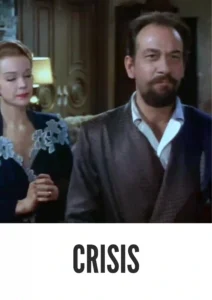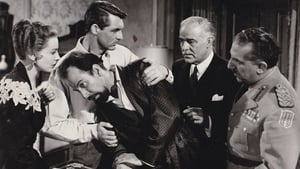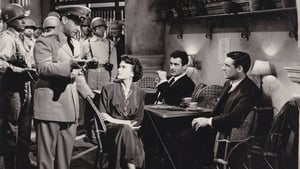Video Sources 0 Views
- Watch trailer
- Crisis 1950 Colorized


Synopsis
Table of Contents
Toggle
Step into the world of political intrigue with Crisis, a captivating drama from 1950, now beautifully colorized for an enhanced viewing experience. Directed by the talented Richard Brooks, this film showcases a compelling blend of suspense and moral dilemmas, making it a must-watch for fans of classic cinema. With its engaging storyline and strong performances, this HD download brings a significant piece of cinematic history to your screen.
Crisis follows the story of Dr. Paul L. Hargrove (John Wayne), an American physician who finds himself caught in a web of political tension when he is called to treat a revolutionary leader in a fictional Latin American country. The stakes are high as Hargrove navigates the dangerous waters of political conflict while trying to uphold his medical ethics.As Hargrove becomes embroiled in the local upheaval, he faces moral dilemmas that challenge his beliefs and loyalties. The film explores themes of patriotism, sacrifice, and the cost of political involvement. With Janet Leigh portraying the strong-willed character of Dr. Hargrove’s wife, the narrative intensifies as they grapple with their personal and professional lives amidst chaos. The film culminates in a gripping climax that tests Hargrove’s resolve and commitment to his principles.
The film features an impressive cast that brings this intense story to life:
- John Wayne as Dr. Paul L. Hargrove
- Janet Leigh as Dr. Ellen Hargrove
- Pedro Armendáriz as General Mendez
- Thomas Gomez as Dr. Carlos
- John Qualen as Mr. McGowan
Crisis falls into the genre of political drama, interwoven with elements of suspense and moral conflict that highlight the complexities of human nature during times of crisis. Its thought-provoking narrative and strong character development make it a captivating film.
Released in 1950, Crisis reflects the political climate of its time, particularly the tensions surrounding post-World War II America and its involvement in foreign affairs. The film presents a critical view of American interventionism while exploring the ethical responsibilities of individuals caught in political turmoil. As part of John Wayne’s diverse filmography, Crisis showcases his ability to tackle complex characters and themes beyond traditional Westerns.
This colorized version of Crisis has been meticulously restored using modern digital techniques that enhance its visual appeal while preserving the film’s original atmosphere of tension and drama. The colorization process involved analyzing the grayscale tones of the original footage to assign appropriate colors to each scene, bringing new life to the characters and settings. This careful restoration introduces classic films to contemporary audiences, ensuring their legacy continues for future generations.
- : Richard Brooks
- : Richard Brooks
- : Harold Rosson
- : Charles Nelson
- : Columbia Pictures
- : Columbia Pictures
- : 92 minutes
- : MP4
- : HD (1080p)
- : Compatible with most devices, including smartphones, tablets, computers, and smart TVs.
Crisis (1950) is often regarded as a significant work within John Wayne’s career, showcasing his versatility as an actor capable of engaging with serious themes. While it may not be as widely recognized as some of his iconic Westerns, it remains an important piece for those interested in exploring the intersection of cinema and politics during this era.
- : What is Crisis about?
- A: Crisis follows an American doctor caught in political turmoil while treating a revolutionary leader in a fictional Latin American country.
- : Is Crisis (1950) well-known?
- A: While not one of John Wayne’s most famous films, Crisis offers a unique perspective on political themes relevant to its time.
- : Is this version colorized?
- A: Yes, this version has been professionally colorized to enhance the viewing experience.
- : What makes Crisis interesting for classic film fans?
- A: The film provides insights into post-war American cinema and John Wayne’s ability to engage with complex social issues.
- : What is the download format?
- A: The download format is MP4, compatible with most devices.
- : What resolution is the download?
- A: The resolution is HD (1080p), ensuring a high-quality viewing experience.
Watch Crisis Today!










